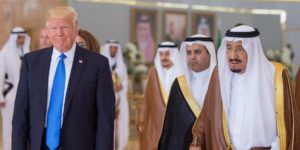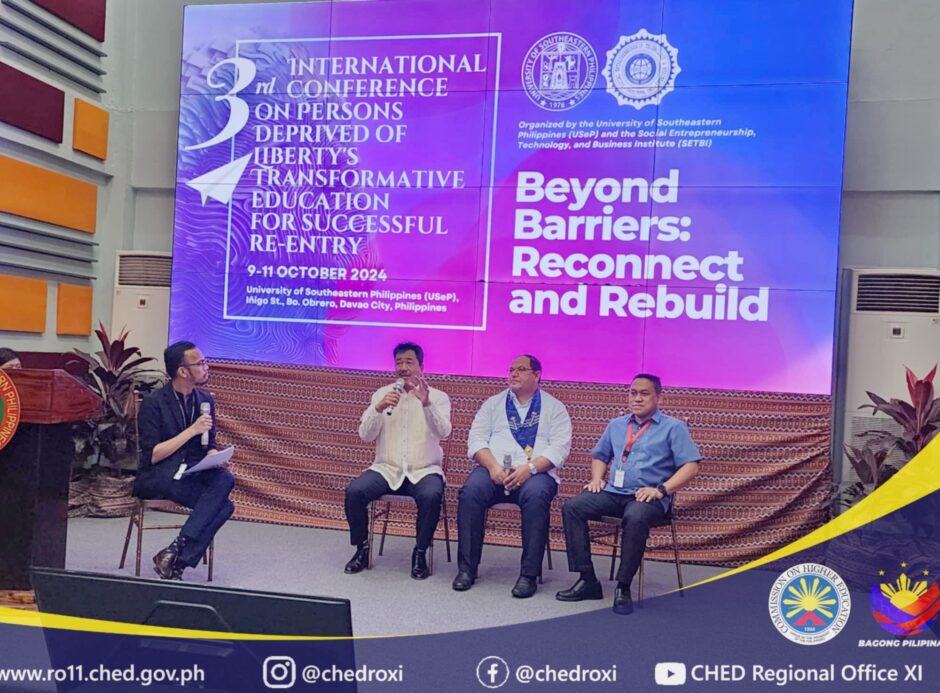 Religion has played an increasing role in U.S foreign policy and diplomacy for more than a decade. During the Bush Presidency, the United States government focused on building capacity within federal agencies to involve religious leaders and faith based communities to reach domestic and international policy goals. By an executive order, Bush established the White House Office of Faith Based and Neighborhood Partnership in 2001. In 2013, the State Department set up the Office of Religion and Global Affairs (RGA), with a Special Envoy to the Organization of Islamic Cooperation (0IC) and Special Representatives to Muslim Communities. Before the creation of these agencies, the State Department worked solely on the basis of the International Religious Freedom Act, established in 1998.President Trump has indicated that dealing with radical Islamic terror groups is a top foreign policy, saying, “Defeating ISIS and other radical Islamic terror groups will be our highest priority.” This policy sees religious ideology as the root of the problem and recommends comprehensive efforts to defeat the ideology. President Donald Trump’s first foreign trip to Saudi Arabia, Israel, and the Vatican acts on this underpinning since these sites host some of the holiest places in Islam, Judaism, and Christianity. The question is can President Trump use religious diplomacy to bring peace and unite people of all faiths around the common vision of peace and prosperity? Could he focus on what a united America would look like? Can President Trump turn a new page for Middle Eastern ties with the U.S to repair relations that were strained during the Obama administration? Can Donald Trump make leaders in the Middle East believe his message? Using his negotiation skills, President Trump is trying to unite conflicting parties.
Religion has played an increasing role in U.S foreign policy and diplomacy for more than a decade. During the Bush Presidency, the United States government focused on building capacity within federal agencies to involve religious leaders and faith based communities to reach domestic and international policy goals. By an executive order, Bush established the White House Office of Faith Based and Neighborhood Partnership in 2001. In 2013, the State Department set up the Office of Religion and Global Affairs (RGA), with a Special Envoy to the Organization of Islamic Cooperation (0IC) and Special Representatives to Muslim Communities. Before the creation of these agencies, the State Department worked solely on the basis of the International Religious Freedom Act, established in 1998.President Trump has indicated that dealing with radical Islamic terror groups is a top foreign policy, saying, “Defeating ISIS and other radical Islamic terror groups will be our highest priority.” This policy sees religious ideology as the root of the problem and recommends comprehensive efforts to defeat the ideology. President Donald Trump’s first foreign trip to Saudi Arabia, Israel, and the Vatican acts on this underpinning since these sites host some of the holiest places in Islam, Judaism, and Christianity. The question is can President Trump use religious diplomacy to bring peace and unite people of all faiths around the common vision of peace and prosperity? Could he focus on what a united America would look like? Can President Trump turn a new page for Middle Eastern ties with the U.S to repair relations that were strained during the Obama administration? Can Donald Trump make leaders in the Middle East believe his message? Using his negotiation skills, President Trump is trying to unite conflicting parties.
Religion can be a significant and useful instrument of peace because religion provides guidelines that transcend the law. The legal system can only tell us what we must do or may not do to each other. Religion teaches us what we ought to do or ought not to do to each other.Politicians cannot make peace nor can the Islamic Summit in Riyad. Peace between people is handmade; it is made everyday by respecting one another and walking together, rather than rejecting any alternative view or refusing to engage with “the other” in the proverbial my way or the highway mentality. Peace comes about when people sincerely seek it and make it happen. More importantly, any violence that seeks religious justification must receive the strongest condemnation because the Omnipotent is the God of life and peace.
No doubt the Middle East needs a strong United States, and the United States need true friends in the Middle East. Also, for people to believe another nation’s message, they need to be consistent with their own messages. In June 2009, President Obama went to Cairo and delivered a speech to the Muslim world from one of the Muslims’ well-known theology schools, Al Azhar University. He enthusiastically praised Islam and apologized on behalf of the West. President Obama announced, “ I have come here to Cairo to seek a new beginning between the United States and the Muslim world.” He blamed tensions between the West and Islam on Western colonialism and kept referring to the Holy Koran, positing that Islam had always been a part of America’s history. He quoted one of all Muslims’ favorite verses, one often cited, “If one kills an innocent, it is if it he has killed all of mankind”—all to ingratiate himself with the Muslim world.
Furthermore, President Obama lied to the Muslims claiming that he was a descendant of generations of Muslims in Kenya and was a man who, when he was a boy in Indonesia, daily heard the beautiful Islamic call for prayer. President Obama talked about the need to fight against terrorism, but without mentioning the name. He revealed his cowardliness in the Israeli-Palestinian conflict as well. Even though Muslims are not the ones to blame for the suffering in Palestine, he failed to remedy their plight, and in reality after eight years of his Presidency, still no peace came in the region. Instead he completely abandoned the Middle East to Russia and Iran allowing them to take charge and ISIS to grow across the territory.
Last Sunday, President Donald Trump spoke in the Saudi Arabian capital of Riyadh. I was very curious about what he would say to the Islamic Arab Summit where he spoke to 50 Muslim heads of states. Interestingly, the reason Trump won the election was largely because he refused to be political correct but was realistic when he talked about Islam. Now, on his first trip abroad as President, he went to Saudi Arabia, the center of the Muslim world. The country supports the state sponsored fundamental religion, Salafism, also referred to as Wahhabism, a strictly conservative form of Sunni Islam. In their religious fervor, the Saudis have bankrolled mosques, madrassa, and university departments throughout the world.
The real point of Trump’s visit to Riyadh was to celebrate the huge sale of US arms to the Saudis to use against Iran. President Donald Trump deserves credit and has reset US policy during the Middle East trip. He made clear, in words and deeds, his intentions to change Obama‘s deal on Iran, ISIS, Israel, and the Kurds. The President backed up his words by making a $110 billion arms deal with Saudi and will help Saudi against Iran, which will help the American economy. It is a win - win for Saudi and the US, but a losing proposition for Iran and Russia. This will show that America is back again in the Middle East and will keep fighting for American interests in the region.
Donald Trump’s proclamation, “We are not here to lecture — we are not here to tell other people how to live, what to do, who to be, or how to worship” has great import. He further announced, “Instead we are here to offer a partnership—based on shared values and interests” between the West and the Muslim world, a partnership that will help the Muslim world. But in order to have a partnership, something needs to change. The Islamic world needs to make choices to change, not the West. President Trump’s position signaled a reversal of the assumption President Obama made in blaming everything on the West.
President Trump did not just talk about terrorism, but about Islam itself. He condemned terrorism and barbaric acts. He said that “barbarism will deliver you no glory -- piety to evil will bring you no dignity. “He challenged the Muslim leaders to drive terror out of their places of worship, out of their communities, out of their holy land, and out of the earth. The left liberal media has already started to air false propaganda against Trump, but they failed to address that Trump is not Obama, who naively thought he could change the world by blaming everything on America, apologizing for America, and praising Islam.
Donald Trump’s constructive engagement with the world can be a force for good as he emphasizes seeking partners not perfection. The President made clear distinctions between good and evil in the world and called on everyone to do good to defeat the forces of evil. Religious diplomacy will more likely grow as a significant force in international diplomacy. Obama’s solution to defeat terrorism was to destroy the Western powers. By contrast, President Trump defined terrorism as the problem with the solution being that all of us unite against it. In one visit, President Trump dismantled political correctness and embraced realism by rolling out a vision of relationships based on national interests yet common values.
Dr. Aland Mizell is President of the MCI and a regular contributor to Mindanao Times. You may email the author at:aland_mizell2@hotmail.com

